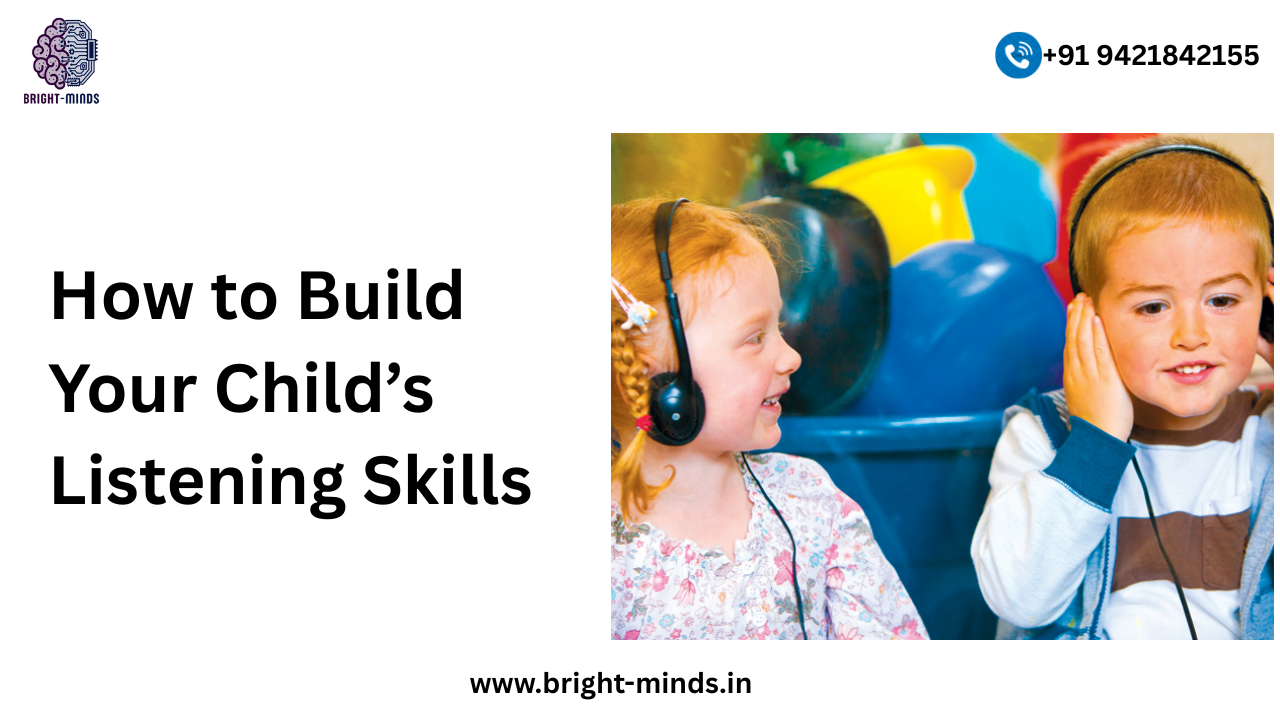- Model Active Listening
👂 Be the example
Why it works:
Children learn by observing, so when you actively listen to them, they learn how to engage fully with others. Show them the power of eye contact, nodding, and responding thoughtfully when someone is speaking.
Tip: Practice active listening when they talk about their day, showing that you value their thoughts and opinions. - Use Games to Practice Listening
🎲 Make listening fun
Why it’s effective:
Games like Simon Says, “Listen and Do,” or “I Spy” help your child practice focused listening in a playful way. These games train their ears to focus and process instructions, improving both attention and comprehension.
Bonus: These games also build patience and turn-taking skills, which are important for social interactions. - Minimize Distractions During Conversations
📱 Create a distraction-free zone
Why it’s crucial:
To truly listen, kids need an environment where they can focus. Turn off the TV, put away phones, and ask your child to do the same during conversations. This shows that listening is a priority.
Tip: Sit down with your child during discussions and encourage them to be present without distractions. - Break Instructions Into Steps
🔄 One thing at a time
Why it’s effective:
Long or complex instructions can be overwhelming for kids. Break tasks down into smaller, manageable steps, and ask your child to repeat the instructions back to you. This ensures they are processing the information carefully.
Tip: Use visual cues or written lists to help them remember and follow through on instructions. - Encourage Conversations and Questions
💬 Foster dialogue
Why it’s important:
Engaging in back-and-forth conversations helps your child develop listening and speaking skills simultaneously. Ask open-ended questions about their thoughts and experiences to encourage them to actively listen and respond.
Bonus: This builds critical thinking and empathy as they learn to understand other people’s perspectives.
💡 How to Reinforce Listening Skills Daily
- Give Praise for Good Listening: Celebrate when your child listens carefully and follows through on tasks. Positive reinforcement encourages them to continue those behaviors.
- Create Listening Rituals: Have “listening time” during family meals or before bed where everyone shares their thoughts on a topic. This helps practice both listening and speaking.
- Incorporate Audiobooks and Podcasts: Listening to stories or educational podcasts allows your child to practice paying attention to details, while expanding their vocabulary and imagination.
Tip: Don’t expect perfection right away! It takes time for children to master the art of listening, so be patient and provide lots of opportunities for practice.
🏫 Why Listening Skills Matter
At Bright-Minds, we understand that listening is the foundation of communication and learning. Strong listening skills help children follow instructions, build relationships, and excel in school. Plus, they’re essential for emotional intelligence and understanding others.
🌟 Final Thoughts
Building your child’s listening skills takes consistent effort and fun, but the rewards are immense! With practice, your child will become an active listener who understands, engages, and connects more effectively with the world around them.
You may be like this:-

